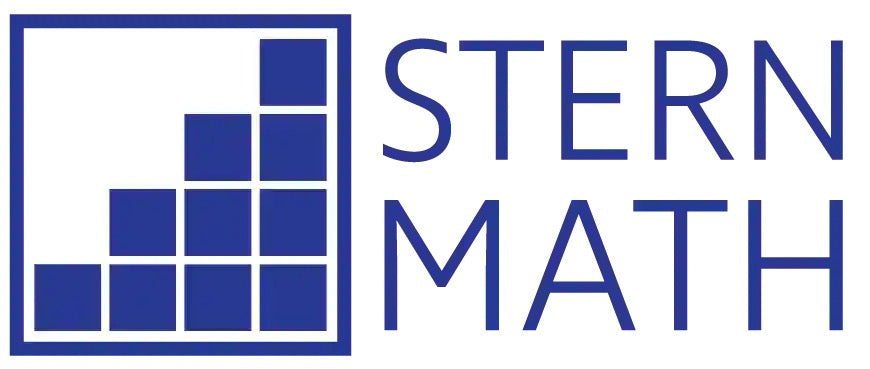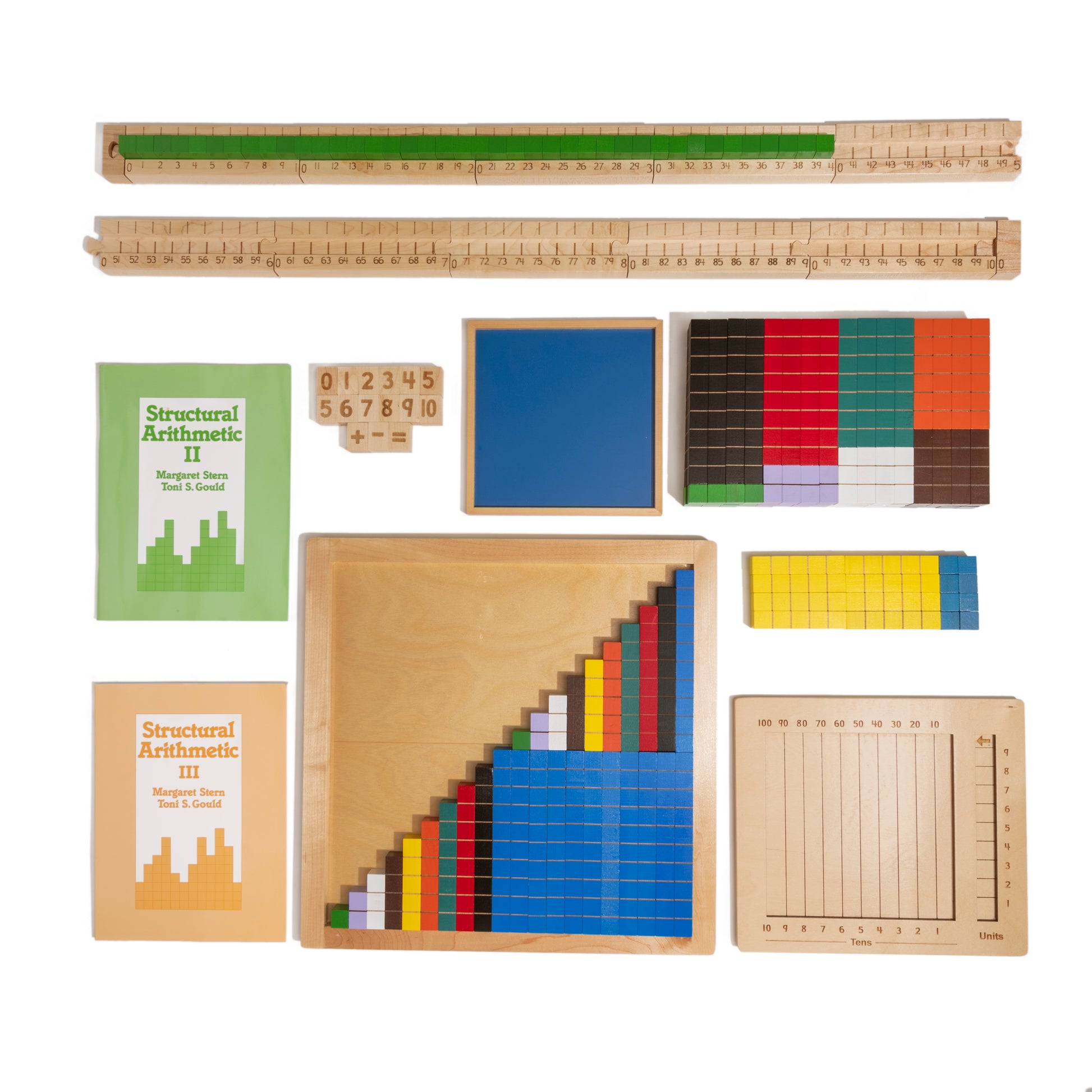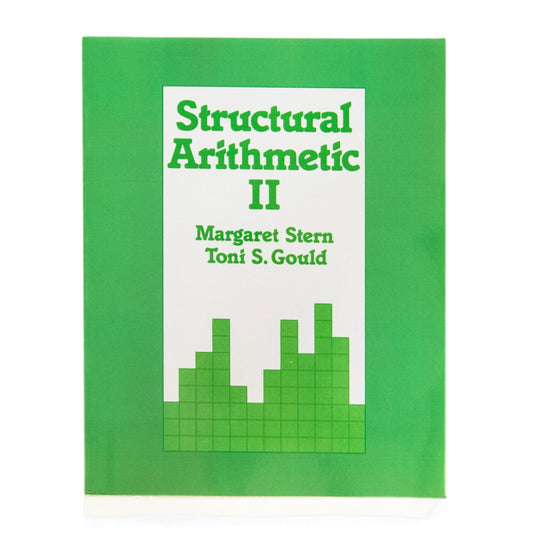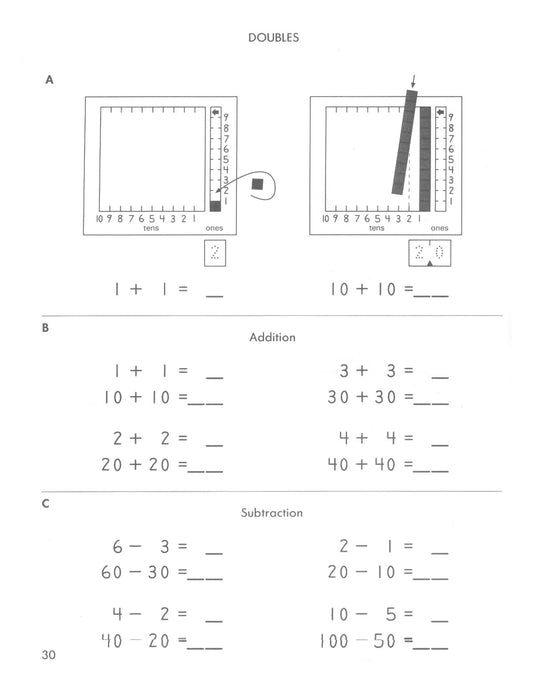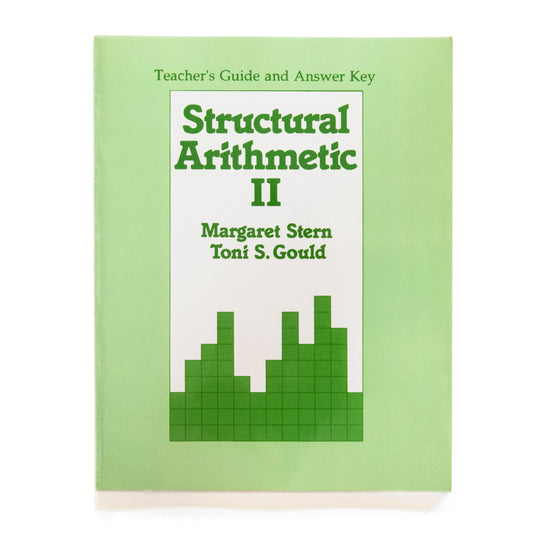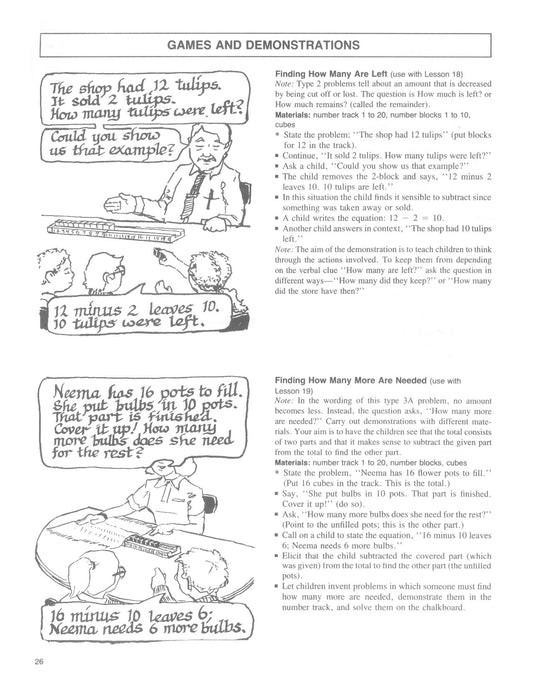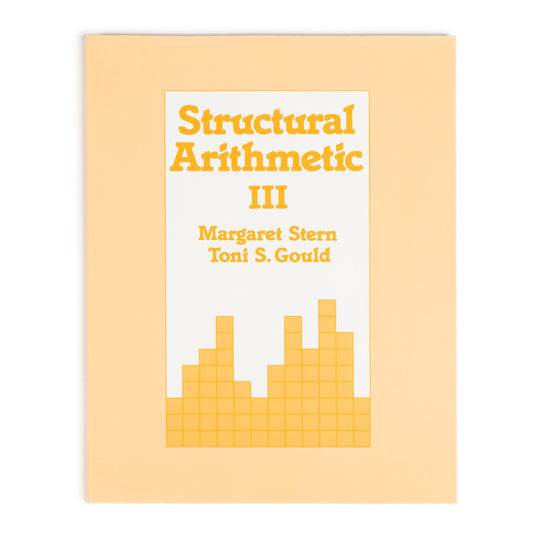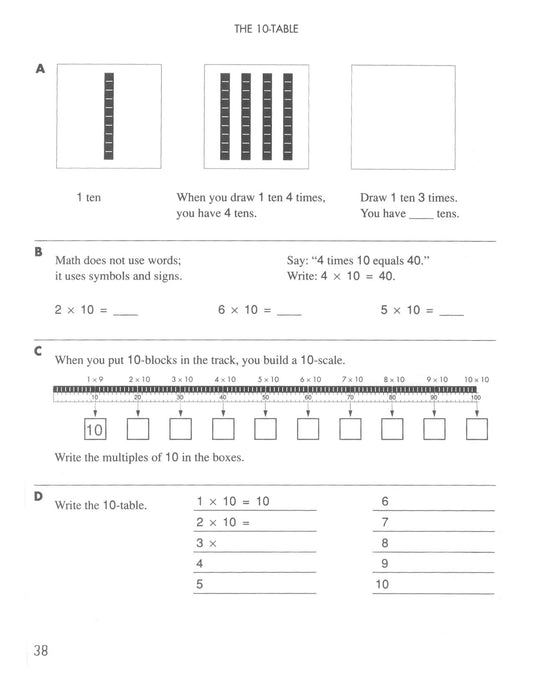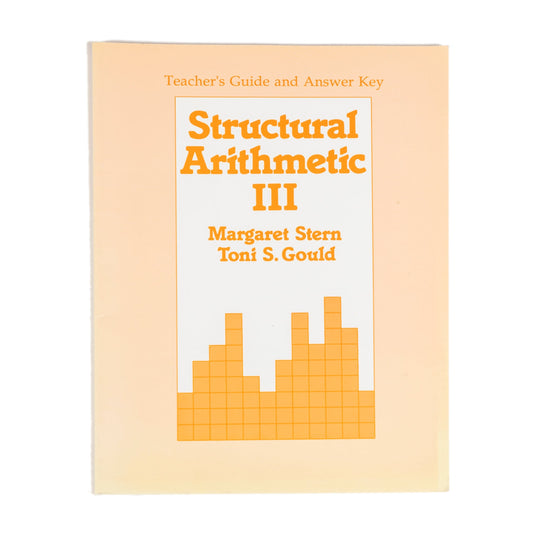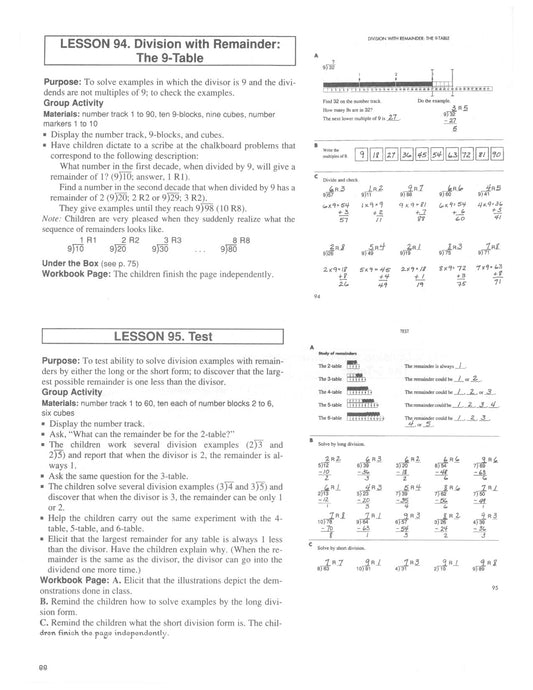Set B: Explore Numbers 1-100+
Set B: Explore Numbers 1-100+
SKU: 7063
Couldn't load pickup availability
Place Value, Regrouping, Multiplication, Division, Time, and Money
These materials correspond with the Teacher's Guides for Structural Arithmetic II, and Structural Arithmetic III (included). Used to teach place value of numbers to 100, addition/subtraction fact strategies to 100, including regrouping, as well as multiplication/division concepts and related fact strategies. Time and money concepts are also covered. Student Workbooks for Structural Arithmetic II and III can be ordered separately.
Contains all pictured materials
*Certain duplicate blocks are not included from every included SKU listed in Set Contains.
Grade Level: 2, 3, and 4
Concepts Explored
Concepts Explored
Numbers 1-100, Addition/Subtraction, Regrouping, Money, and Time
Set Contains
Set Contains
-
 20-Tray with Blocks
20-Tray with Blocks
-
 Dual board
Dual board
-
 10-Box
10-Box
-
 Number Markers
Number Markers
-
 Fifty 1-Blocks
Fifty 1-Blocks
-
 Ten 2-Blocks
Ten 2-Blocks
-
 Ten 3-Blocks
Ten 3-Blocks
-
 Ten 4-Blocks
Ten 4-Blocks
-
 Ten 5-Blocks
Ten 5-Blocks
-
 Ten 6-Blocks
Ten 6-Blocks
-
 Ten 7-Blocks
Ten 7-Blocks
-
 Ten 8-Blocks
Ten 8-Blocks
-
 Ten 9-Blocks
Ten 9-Blocks
-
 Ten 10-Blocks
Ten 10-Blocks
-
 Number Track 1-100
Number Track 1-100
-
 Structural Arithmetic III: Teachers Guide
Structural Arithmetic III: Teachers Guide
-
 Structural Arithmetic II: Teachers Guide
Structural Arithmetic II: Teachers Guide
-
 Ten 1-Blocks Pick Your Color
Ten 1-Blocks Pick Your Color
Materials
Materials
Our products are made of heirloom quality wood and can be passed from generation to generation. Products are finished with either a clear protective coating or paint. Each coating has been stringently tested for safety and exceeds US safety standards.
Shipping & Returns
Shipping & Returns
Our current lead time is 2 weeks.
However, we are still affected by the Covid-19 supply chain issues.
You have 30 days to return any new, unopened items. Customers credited for products, but are responsible for return shipping and handling.
CHOKING HAZARD
CONTAINS SMALL PARTS. NOT FOR CHILDREN UNDER 3 YEARS
View full details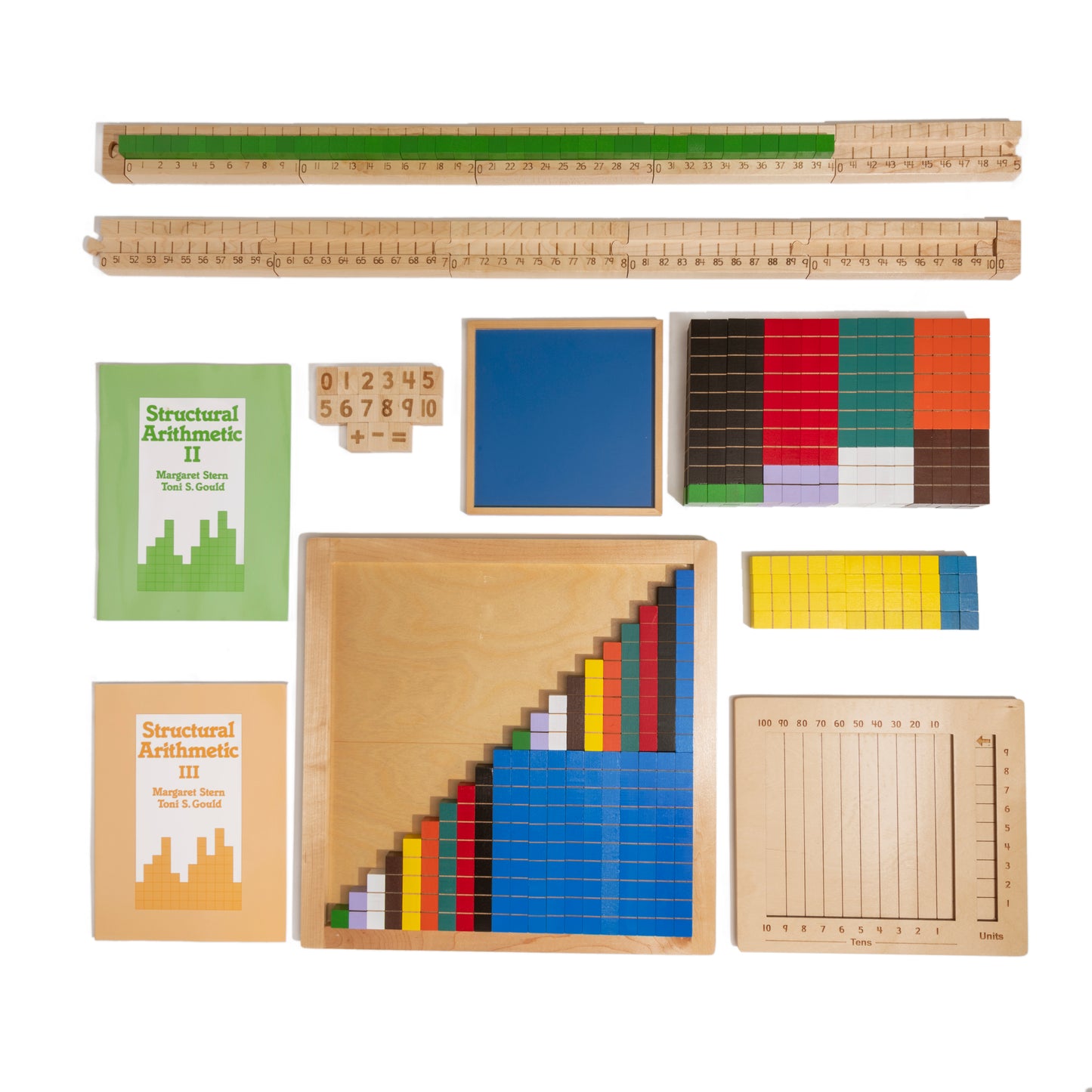
Associated Materials
-
Structural Arithmetic II: Student Workbook
Regular price $13.50 USDRegular priceUnit price per$13.50 USDSale price $13.50 USD -
Structural Arithmetic II: Teachers Guide
Regular price $20.00 USDRegular priceUnit price per$20.00 USDSale price $20.00 USD -
Structural Arithmetic III: Student Workbook
Regular price $13.50 USDRegular priceUnit price per$13.50 USDSale price $13.50 USD -
Structural Arithmetic III: Teachers Guide
Regular price $20.00 USDRegular priceUnit price per$20.00 USDSale price $20.00 USD
Teaching Numbers to 20: Place Value and Fact Strategies
Teaching with Materials
20-Tray
The 20-Tray demystifies the difficult teen numbers by demonstrating that the sequence and concepts they have internalized regarding numbers 1 to 10 extend to higher numbers, as well. Children discover that the numbers 11-20 are made of ten and some ones, and that the combinations of ten apply to make combinations making twenty e.g. (4+6=10, so 14+6=20).

The 20-Tray is used to demonstrate:
- Understanding of teen numbers
- That all teen numbers are made of a ten and some ones
- Counting forwards and backwards within 20
- Fluency with adding 10 and 9 to any number
- Combinations of 20
Building the 20-Stair
Children discover the role of 10 in each teen number as they build the stair from 1 to 20. They name the blocks in each step, such as 10 and 5, and then give their sum, 15. In this way they all understand the composition of each number from 11 to 20.

20-Track
The 20-Track provides children with an introduction to the number line and gives them the opportunity to discover addition and subtraction facts for numbers 1 to 20. Children can also see how the structure of the facts they learned about from numbers 1 to 10 have a similar structure in the numbers 11 to 20.

The 20-Track is used to teach:
- Concept of teen numbers using a linear representation
- Place value of teen numbers (one 10 block and another block)
- Addition and subtraction within 20
- Fluency with adding 10 and 9 to any number
- Fluency with making a 10 to add two numbers
Whole Class Lesson on Adding 9
Temple Ary with a whole class of second graders at the Ramaz School in New York City. She is working with the 20-Tray to teach what happens when you add a number to 9. You will notice that each child has a white board to write on and that the children are regularly asked to explain their thinking about how they got to a particular answer, thereby building their conceptualizing, problem solving skills and vocabulary for math.
Teaching Numbers to 100: Place Value and Multi-Digit Addition/Subtraction, Multiplication/Division
Teaching with Materials
Dual Board
Teaches place value; addition and subtraction of 2 digit numbers; regrouping; multiplication of 10, 9, 8, and 5. It is often difficult to demonstrate to students the idea of regrouping. The structure of the Dual Board demonstrates easily that ten ones creates another ten – you physically run out of space for ones – and forces children to regroup them (or exchange them) for a ten-block.
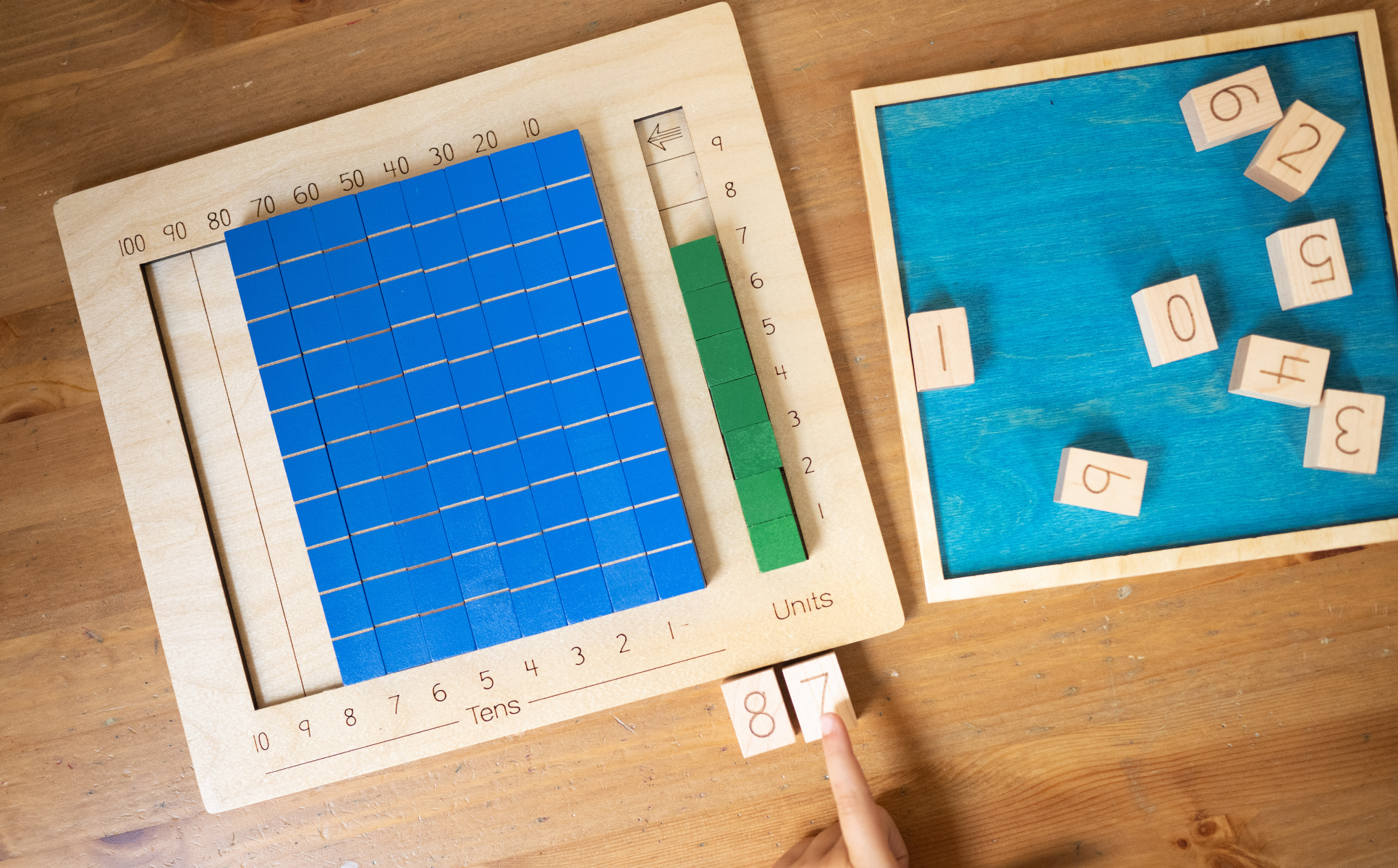
The Dual Board is used to teach:
- Place value in 2-digit numbers
- Addition and subtraction of 2-digit numbers
- Regrouping
- Multiplication
Building 2-Place Numbers in the
Dual Board
Children build a 2-place number, such as 28, by putting two 10- blocks and eight 1-blocks (single cubes) in the Dual Board. Then they measure the number by placing the blocks in the number track. This gives them both the cardinal and the ordinal aspects of numbers. The Dual Board helps children see the structure of 2-place numbers. The number track helps children see where numbers come in the number sequence.

Number Track and Blocks
The Number Track is a concrete representation of the number line, giving children an understanding of the magnitude of “big” numbers. Children build numbers and play games on the number track, developing mental images of those numbers as they develop fluency in all operations.

The number track is used to demonstrate:
- The place and magnitude of numbers on a number line from 0 to 100
- The decades and the base-ten number system
- Addition and subtraction
- Multiplication and division
The 10-Table
The children discover the multiples of the 10-table by placing the 10-blocks in the number track, one after the other. They learn the meaning behind each multiplication fact as they state it in this game. This game is called "Stop and Go."


Introducing the Containing Aspect of Division: An Example
Children learn how to record and solve division examples. To discover how many times 5 goes into 15, children put 5-blocks into the number track until they reach 15. The teacher shows them where to write the answer 3 in this division algorithm.

